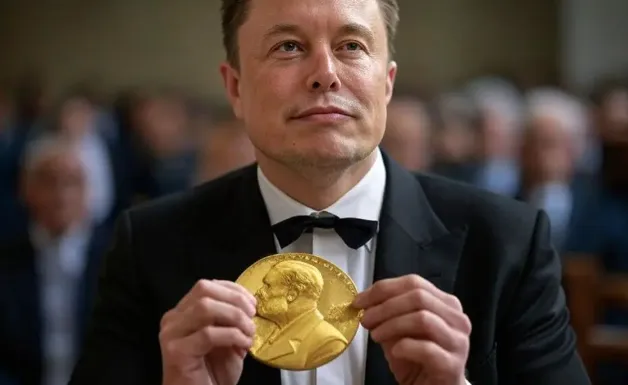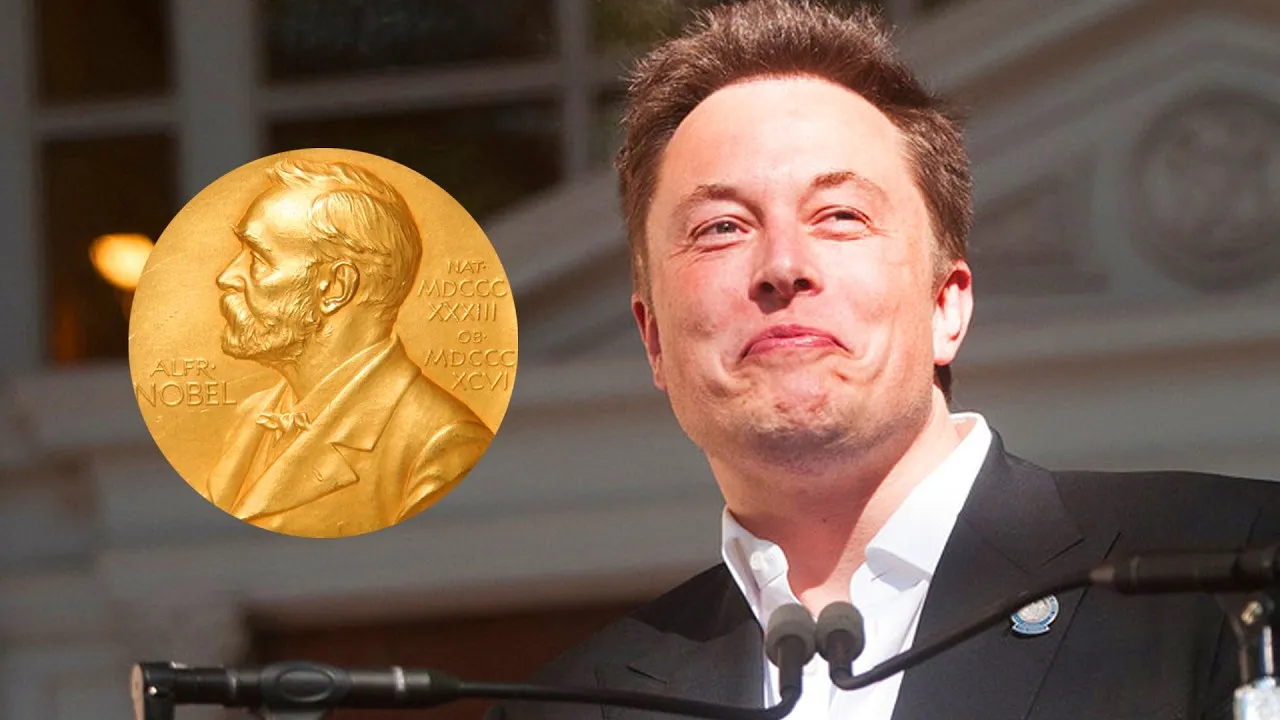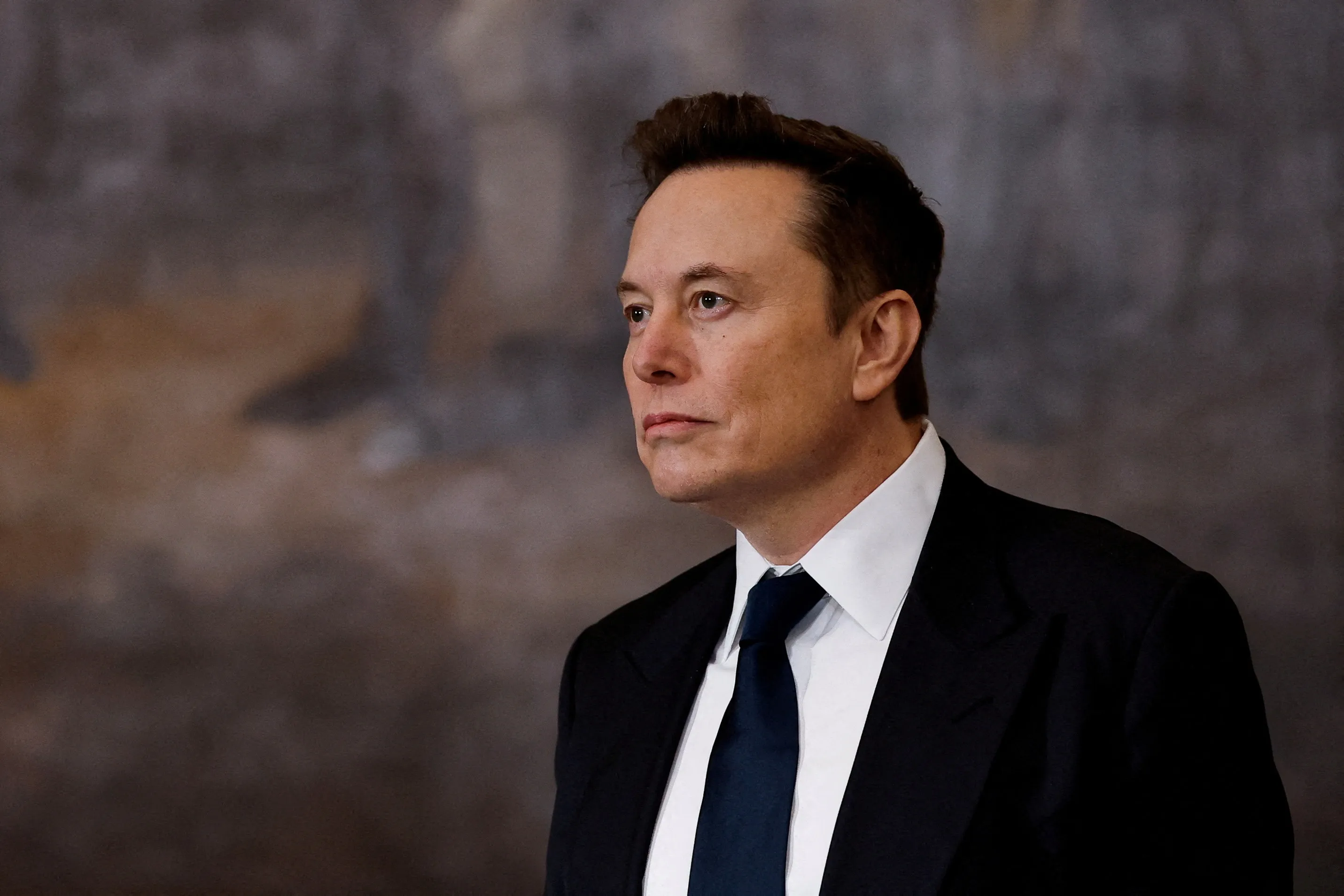

Elon Musk Nominated for the 2025 Nobel Peace Prize: Would This Award Turn into a Joke If He Wins?
Elon Musk, the billionaire entrepreneur and CEO of Tesla, SpaceX, Neuralink, and several other high-profile companies, has officially been nominated for the 2025 Nobel Peace Prize. While some celebrate this nomination as recognition of his contributions to technology, clean energy, and global connectivity, others argue that it undermines the credibility of the prestigious award. The debate surrounding Musk’s nomination raises an important question: should a business magnate, despite his revolutionary innovations, be considered for a prize traditionally associated with diplomacy, humanitarian efforts, and conflict resolution?
Elon Musk’s Achievements That Led to His Nobel Peace Prize Nomination
Musk’s nomination comes on the heels of his groundbreaking work in multiple industries. From electric vehicles and space exploration to artificial intelligence and global internet coverage, Musk’s influence is undeniable. Supporters argue that his impact on sustainability and human progress is so profound that it merits the Nobel Peace Prize.
1. Advancing Sustainable Energy and Climate Solutions
One of Musk’s most significant contributions to global peace and sustainability has been his work in clean energy. As CEO of Tesla, he has led the way in developing electric vehicles, reducing dependence on fossil fuels, and promoting renewable energy. Tesla’s battery technology and solar energy solutions are viewed as critical tools in the fight against climate change, which many experts argue is one of the greatest threats to global stability.

Tesla’s innovations have also influenced other major automotive companies to accelerate their transition to electric mobility, creating a ripple effect that could lead to a cleaner and more sustainable planet. Proponents of his nomination argue that environmental sustainability directly impacts global peace, as resource scarcity and climate-related disasters have historically contributed to conflicts and displacement.
2. Starlink: A Tool for Global Communication and Stability
Musk’s company SpaceX has launched thousands of Starlink satellites to provide internet access to underserved and remote regions of the world. In conflict zones and areas affected by natural disasters, Starlink has proven to be a vital tool for communication, allowing governments, humanitarian organizations, and civilians to stay connected.
For instance, during the war in Ukraine, Starlink was deployed to help ensure secure communication for the Ukrainian military and government. This initiative was praised for its role in maintaining internet access in war-torn regions, providing a critical service for those affected by the conflict. Supporters of Musk’s nomination argue that providing free and unrestricted access to the internet helps empower people and promote democracy, key elements of lasting peace.
3. Space Exploration and the Future of Humanity
Musk’s long-term vision includes the colonization of Mars, a goal that he believes is essential for the survival of the human race. While space exploration may not seem directly related to peace, some argue that ensuring humanity’s survival by becoming a multi-planetary species contributes to global stability.
Additionally, SpaceX’s technological advancements have played a crucial role in international space collaboration. Musk’s innovations in reusable rockets have reduced the cost of space travel, making scientific discovery and intergovernmental space missions more feasible. Some analysts argue that the peaceful exploration of space fosters international cooperation, which aligns with the Nobel Prize’s mission.
Why Critics Believe the Nobel Peace Prize Would Lose Credibility
Despite Musk’s accomplishments, his nomination has sparked backlash from critics who believe the Nobel Peace Prize should be reserved for individuals who have directly contributed to humanitarian efforts, diplomacy, and peacebuilding.
1. The Nobel Peace Prize’s Traditional Purpose
Historically, the Nobel Peace Prize has been awarded to figures such as Martin Luther King Jr., Malala Yousafzai, Nelson Mandela, and the Dalai Lama—individuals who have dedicated their lives to fighting for justice, human rights, and diplomacy. Critics argue that Musk’s work, while revolutionary, is primarily focused on business and profit rather than humanitarianism.
Unlike previous laureates who worked to end wars, promote human rights, or advance nonviolent activism, Musk has built a corporate empire that thrives on innovation but also faces accusations of union-busting, labor law violations, and environmental concerns. Detractors believe that awarding him the prize would blur the lines between business success and peace advocacy.
2. Controversial Leadership and Public Behavior
Musk is known for his outspoken and sometimes controversial behavior on social media. His frequent use of Twitter (now X) has led to feuds with politicians, journalists, and even his own employees. His critics argue that a Nobel Peace Prize laureate should embody diplomacy and composure, qualities that Musk often lacks.
Additionally, Musk’s acquisition of Twitter and subsequent policy changes have been highly divisive. Some see him as a defender of free speech, while others accuse him of enabling misinformation and hate speech. His unpredictable leadership style raises concerns about whether he is truly fit to be considered a peacemaker.
3. The Focus on Profit Over Humanitarianism
Many of Musk’s ventures, while innovative, are driven by profit. Critics argue that he has not dedicated his life to peacebuilding in the same way that traditional Nobel Peace Prize winners have. While Tesla and SpaceX have made significant contributions to society, they remain corporate entities with shareholders and financial interests at heart.
Moreover, Musk’s treatment of employees has been scrutinized, with reports of harsh working conditions at Tesla factories and layoffs across his companies. Detractors argue that peace is not just about technological advancements but also about ethical leadership and social responsibility.
The Broader Implications of Musk’s Potential Win
If Elon Musk were to win the 2025 Nobel Peace Prize, it would undoubtedly reshape the perception of what it means to be a peace advocate in the modern world. While his contributions to sustainable energy, global connectivity, and space exploration are monumental, the debate over his nomination highlights a shift in how society defines leadership and global impact.
Some see Musk’s potential win as a sign that innovation and technological progress are now considered fundamental to global peace. Others fear it would set a dangerous precedent where business magnates with influential platforms are equated with activists and humanitarians.
1. A Step Toward Recognizing Technological Contributions to Peace?
If Musk wins, it could signal a shift in the Nobel Committee’s criteria for awarding the Peace Prize. It would acknowledge that technological advancements play a critical role in shaping a peaceful and sustainable future. From renewable energy to space exploration, Musk’s work touches on many aspects of progress that could lead to global stability.
2. A Blow to the Nobel Peace Prize’s Integrity?
Conversely, many would see Musk’s victory as a dilution of the prize’s purpose. Critics would argue that it undermines the legacy of previous laureates who risked their lives for peace and justice. It could also set a precedent where billionaires and entrepreneurs with philanthropic initiatives are prioritized over grassroots activists and humanitarian workers.

3. How Would Musk Respond to Winning?
Given Musk’s unpredictable nature, his reaction to winning the Nobel Peace Prize could be unorthodox. Would he accept it humbly, or would he mock the institution on social media? His track record suggests that he may use the opportunity to push his own narratives rather than embracing the traditional responsibilities of a Nobel laureate.
Conclusion: Does Elon Musk Deserve the Nobel Peace Prize?
Elon Musk’s nomination for the 2025 Nobel Peace Prize has sparked a polarizing debate about what defines a peacemaker in the modern era. His contributions to sustainable energy, space exploration, and global communication are undeniable, but critics argue that his work lacks the direct humanitarian impact traditionally associated with the award.
If Musk wins, it will redefine the Nobel Peace Prize’s legacy, potentially opening the door for more tech leaders and entrepreneurs to be considered for the honor. However, if he loses, the discussion surrounding his nomination will still leave a lasting impact on how society evaluates leadership, innovation, and their roles in global peace.
Whether you see Musk as a visionary shaping the future of humanity or an unconventional billionaire undeserving of the Peace Prize, one thing is clear: his influence on the world is too significant to ignore.


















